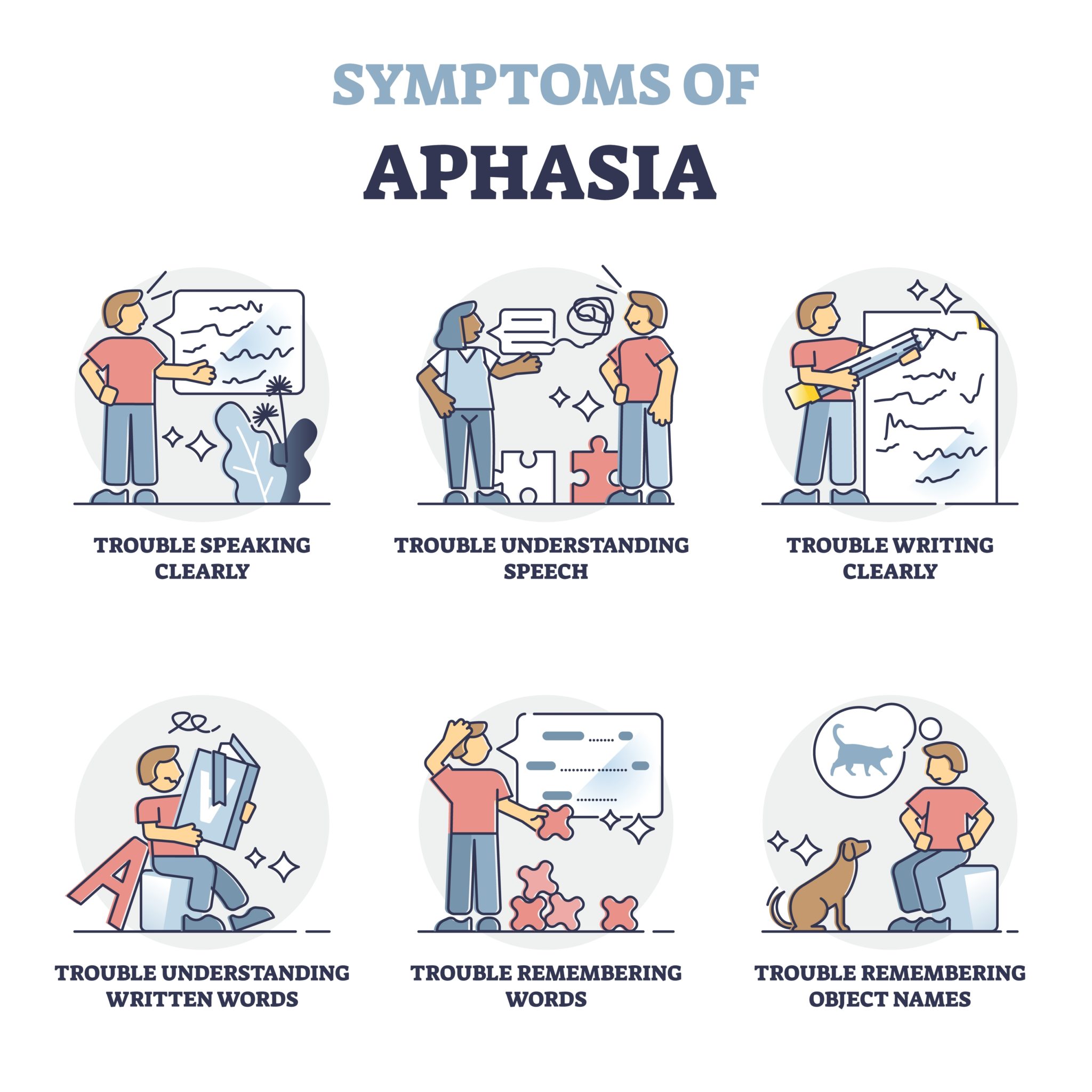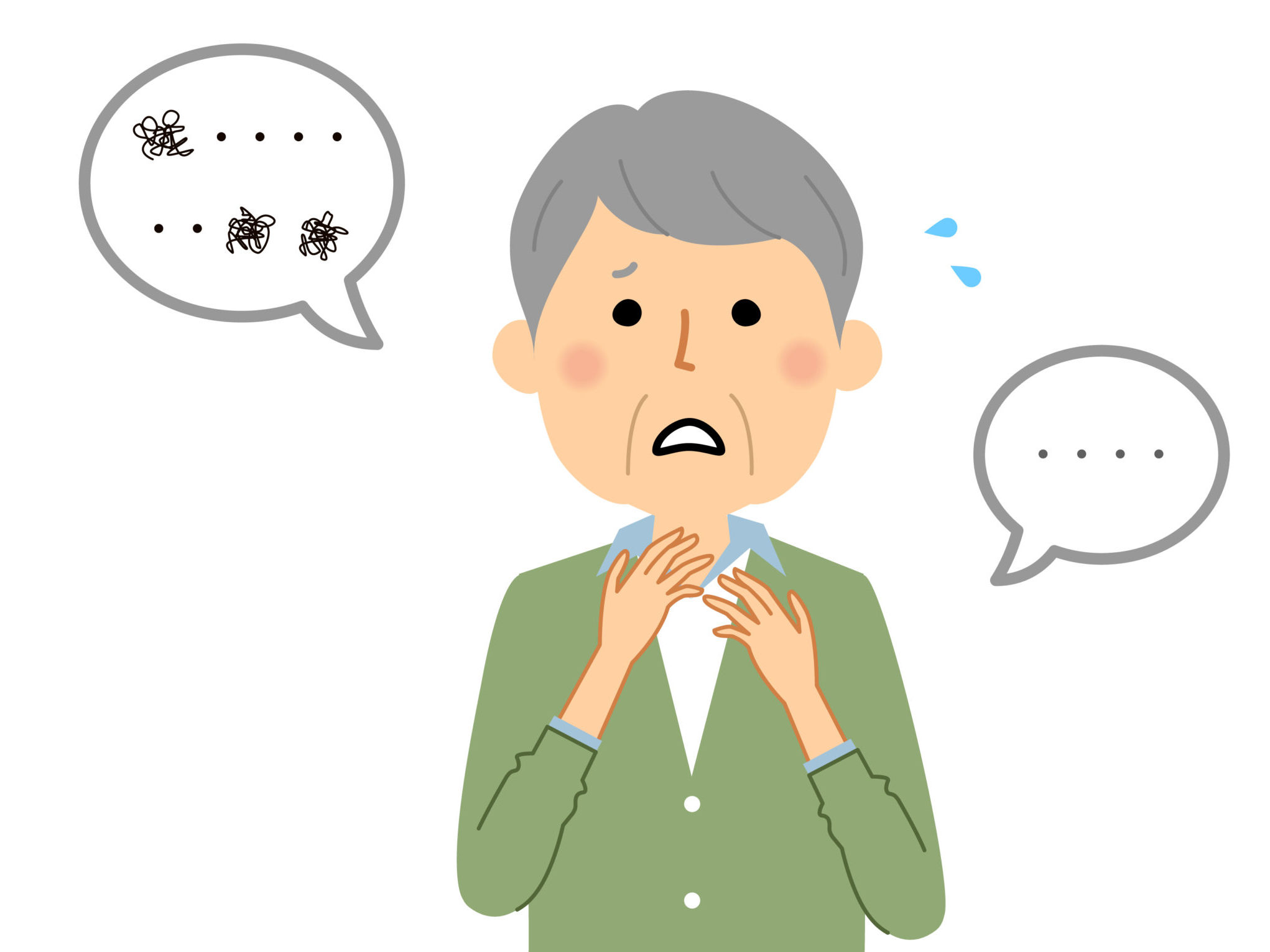After decades in the spotlight, film star Bruce Willis recently announced an early end to his acting career. When his family shared the reason why, a spotlight also fell on his diagnosis, which affects more than 2 million Americans: aphasia.
Aphasia is a communication condition that can occur at any age, but it’s most common over the age of 60. Because it involves language, it impacts different people in different, deeply personal ways.
If you or someone you love has aphasia, HopeHealth Community VNA, shares information – and hope.

What causes aphasia?
Aphasia is caused by an injury to the brain. That damage can occur any number of ways, coming on suddenly or slowly.
The most common cause is stroke, but it can also be brought on by a neurological disease, brain tumor, or head injury. Bruce Willis’ diagnosis seems to be primary progressive aphasia, which is usually a type of dementia.
Aphasia affects more people than Parkinson’s Disease, cerebral palsy or muscular dystrophy.
What are the symptoms of aphasia?
In general, aphasia impairs a person’s ability to communicate. It can show up in many different ways.
Symptoms can include:
• Difficulty remembering words
• Difficulty forming spoken words
• Difficulty forming full sentences
• Difficulty making sense when speaking
• Difficulty writing
• Difficulty understanding what others are saying
• Difficulty reading
• Difficulty with numbers
One person might experience just one of these challenges. Someone else might struggle with all of them. It depends on the type of aphasia they have – common types include Broca’s aphasia, Wernicke’s aphasia, global aphasia and anomic aphasia. You can learn more at aphasia.org.

What causes the different types of aphasia?
Language is a complicated matter, which involves many parts of the brain working together. The specific type of aphasia depends on which parts of the brain are injured.
Some people might seem perfectly fine, they can talk and comprehend others, but you ask them to write the alphabet and they can’t do it. It has nothing to do with their intelligence. It’s just that they have damage to that area of the brain.
Aphasia also impacts people differently depending on how severely the brain has been damaged. One person might struggle to say or understand a single word. Another person might just need patience while they gather their thoughts.
Is there a cure?
Unfortunately, there is no cure.
Some people make a full recovery from aphasia on their own, usually in cases like stroke or head injury where the brain heals over time.
But there is no medication or cure. Most people must learn to live with some degree of aphasia.
Can aphasia get better over time?
In many cases, yes. You can’t always get back to 100%, but you can make important changes so that you’re participating in life again.
People with aphasia can make meaningful improvements in their speech and language abilities – especially with the help of speech therapy.

How can a speech-language pathologist help?
You can’t address language and cognition without an excellent working knowledge of brain function. Speech therapists (also known as speech-language pathologists) are specially trained with this knowledge. They can understand the root cause of a patient’s communication challenges, and help the entire family focus on exercises designed to help.
A lot of speech therapy for aphasia, especially in the home, focuses on caregiver education and support. You can have a better impact on the patient’s recovery if the family member or the caregivers are involved and invested.
What communication exercises help with aphasia?
Depending on the type of aphasia, a speech therapist might use:
• Oral-motor exercises to strengthen the muscles needed for speech
• Memory techniques
• Repeating sounds
• Naming pictures
• Sentence building
• Reading out loud
• Singing
• Nonverbal communication therapies that use computers or pictures
Many of these exercises are now available as games for tablets and smartphones – user-friendly technology that patients have embraced.
HopeHealth Community VNA also incorporates a lot of music into therapy.
Aphasia is usually damage to the left side of the brain. When you start to use music, you’re engaging the right side of the brain, which still houses a lot of language. If a patient loves country music, use country. If they grew up with the Beatles, use the Beatles. We always tell them their homework is to have a karaoke night.

What is the goal of speech therapy for someone with aphasia?
It’s personal to each patient. With the help of a speech therapist, patients work to recover as much language as possible, so they can participate in the parts of life that matter most to them.
The goal might be pronouncing a grandchild’s name, writing cards to loved ones, recording a memoir, or filling out a checkbook. Hodges recently helped one patient practice ordering a favorite takeout meal over the phone.
To be able to do something as simple as ordering a pizza for yourself – yes, it gives you independence. But what it really gives you is a sense of self. You get to feel like yourself again.
How does speech therapy improve quality of life for patients with aphasia?
Communication isn’t just about transmitting or receiving messages. It’s what allows us to have social connection. People with aphasia are especially at risk for losing those connections, which can lead to depression and isolation. Speech therapy gives them the tools to stay connected.
It also builds their confidence and sense of autonomy, giving them back some of what their condition took away.
To be able to restore that to a person, and give them a sense of themselves again, it’s pretty special. I feel lucky that I’m able to do what I do. If I can help a patient say their husband’s name or sing ‘Happy Birthday,’ they’re participating in life. That’s what’s important.

